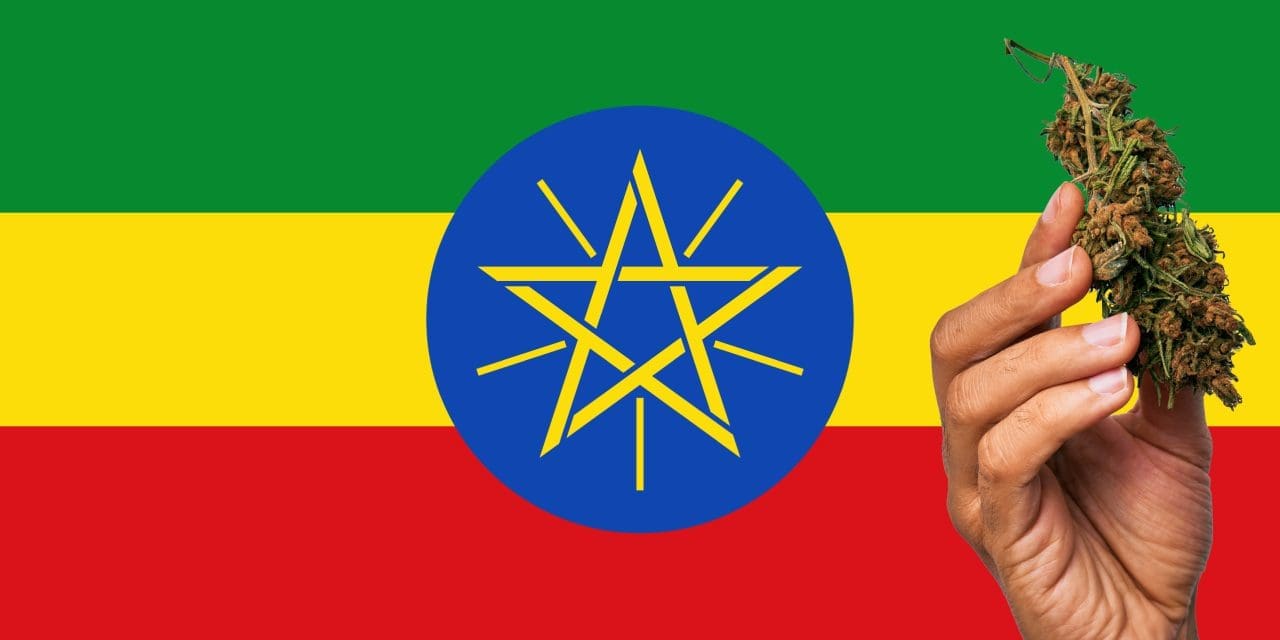Is Marijuana Legal in Ethiopia?
3 min read


According to historians, marijuana has been used in Ethiopia for centuries. However, despite archaeological evidence that indicates a longstanding relationship with cannabis, the plant remains illegal for both medicinal purposes and recreational use. According to the Ethiopian criminal code, the possession, transport, sale, or storage of cannabis is punishable by up to 10 years in prison and a fine.
Marijuana Laws in Ethiopia
A handful of countries in Southern Africa, such as South Africa, Lesotho, and Zimbabwe, have recently legalized medical marijuana. However, in Ethiopia, cannabis has not been decriminalized or legalized for medicinal purposes. CBD products are also illegal as they are a cannabis derivative.
The Ethiopian Food and Drug Administration and Control Authority is responsible for regulating substance use in Ethiopia, while the Ethiopian Federal Police Counter-Narcotic Division is responsible for enforcing these policies. Illicit drug use is subject to severe sanctions, as there is a widely held belief that drug abuse is the source of many social ills in the Eastern African nation.
Individuals charged with marijuana possession in Ethiopia may be given a sentence of six months in prison and a fine. Anyone found with the plant is supposed to be brought before a court within 48 hours.
Those found selling or trafficking cannabis are subject to more severe penalties, with the possibility of five to ten years imprisonment and a maximum fine of $3,334. Ethiopia’s position in Africa means that law enforcement authorities regularly conduct cannabis and drug checks at border crossings and points of entry. Cannabis seeds are not permitted to be sent via mail either.
What to Know About About Cannabis in Ethiopia
To understand Ethiopia’s stance on cannabis use, it’s helpful to establish some background regarding its history and current use patterns in the region.
There Is an Extensive History of Cannabis in Ethiopia
Cannabis is indigenous to many African countries, and Ethiopia is no exception.
Archaeologists found ceramic smoking pipes with traces of cannabis in Lalibela Cave in the Begemeder Province and dated the vessels to the year 1320. The legacy of cannabis in Ethiopia was further compounded in the 1940s when the Rastafari movement sought to return to their spiritual home from the Caribbean. The Ethiopian emperor at the time supported this return by bestowing the Rastafari people with 500 acres of land so they could transition back to their homeland.
That land, which is called Shashamane, is now populated by a large Rastafarian community. The Rastafari view cannabis as a holy herb, and the plant is cultivated in the area for personal spiritual use, despite its illegality in Ethiopia. Those who travel to the land of the Rastafari anecdotally report that it is easy to access cannabis for personal use.
Ethiopia Has Approximately 7.1 Million Cannabis Consumers
Ethiopia is the second most populated country in the African continent, with nearly 122 million people.
A 2019 African Regional Hemp and Cannabis Report carried out by a Washington-based research institute indicated that cannabis holds very lucrative market potential in Ethiopia, valued at close to 10 billion dollars. The report also estimated that Ethiopia has significant local consumption, with approximately 7.1 million cannabis users, many of whom are young people.
Many of the African countries that have recently moved to legalize medical marijuana have done so with an awareness of the potential economic benefits. It’s possible that Ethiopia may follow suit in time, though the Ethiopian government has made no move to date to table the topic for discussion.
Can You Grow Cannabis In Ethiopia?
It is illegal to grow marijuana in Ethiopia. That being said, the plant is cultivated in pockets throughout the country, with Shashamane being the most prolific producing region.
Much of the weed or bhang that is trafficked across Ethiopian borders to Kenya, for example, hails from Shashamane. However, cannabis is also cultivated throughout the western, central, and northwestern parts of the country.
Shashamane is celebrated for the quality of its (illegal) weed. The region is also known for being the birthplace of a landrace strain called Shashamane Sativa, which is celebrated for its intense psychoactive effects and zesty, fruity scent and flavor.
The Bottom Line
Cannabis has a long history in the Eastern African country of Ethiopia. However, despite its presence in the region for many centuries, the plant is illegal for both medical and recreational purposes. Those found possessing marijuana, or selling, transporting, or storing it, may be severely penalized with a fine or sentenced to up to 10 years in prison.